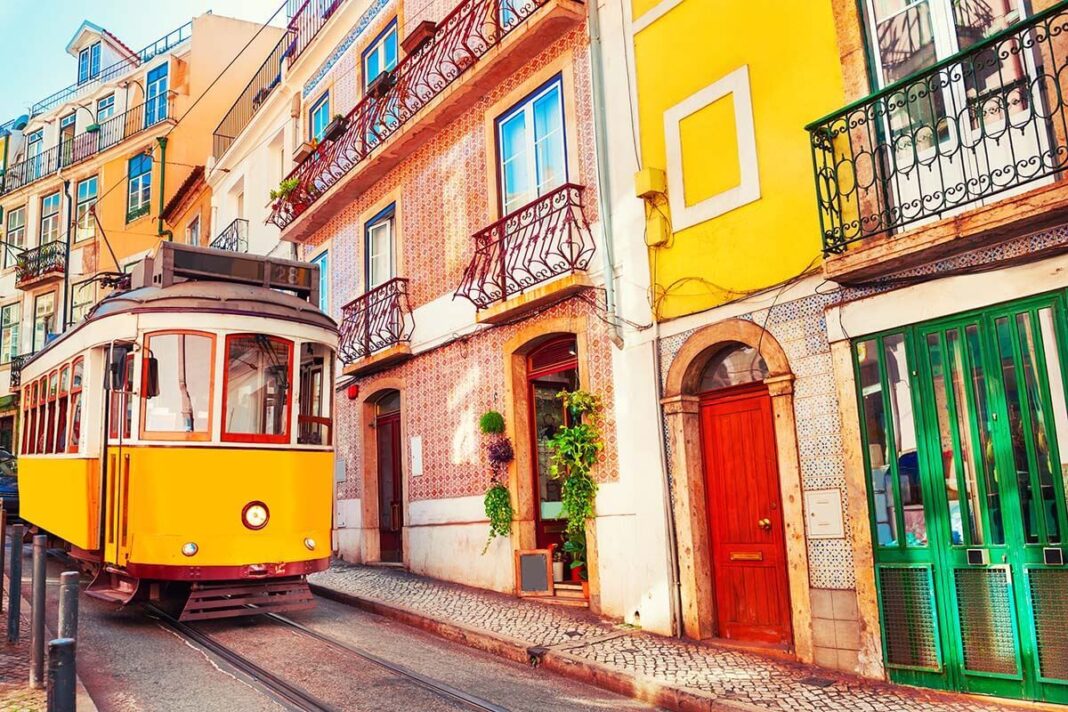Lisbon is one of those cities that blends business sensibility with creative rhythm. In my 15 years leading teams across Europe, I’ve often found this city to offer not just scenic beauty but also lessons in culture, collaboration, and renewal.
Whether you’re visiting for work, reflection, or inspiration, the truth is Lisbon rewards those who know where to look and what to experience beyond the obvious tourist paths.
Explore Alfama’s Timeless Character
The Alfama district is the heart and soul of Lisbon, and exploring it is one of the best things to do in Lisbon to choose if you want authenticity. The narrow cobbled streets, traditional Fado music, and family-run restaurants tell the real story of the city’s resilience.
Years ago, after a hectic client project in Madrid, I spent a Saturday here and was reminded of how human pace matters more than deadlines. From a leadership perspective, Alfama teaches patience—the art of listening before acting. It’s a place to recharge, observe, and understand how community thrives without losing identity.
Visit Belém for History and Perspective
Belém isn’t just a district; it’s an archive of ambition. Back in 2018, everyone spoke of “scaling fast.” But in Belém’s monuments—like the Jerónimos Monastery and the Tower of Belém—you see the long game of vision and persistence.
For anyone running a business today, that’s a critical reminder. Great ventures stand on great patience. I once walked a client through Belém’s museums, showing how leadership rooted in legacy outlasts trends. This area captures Portugal’s age of exploration—a fitting symbol for leaders still navigating uncertainty and global competition.
Taste Lisbon’s Food Culture
From pastel de nata to grilled sardines, Lisbon’s food scene reflects its spirit—simple yet profound. The best things to do in Lisbon to choose often begin at the dining table.
I tend to measure businesses by culture, and in Lisbon’s restaurants, that culture is collaboration in its purest form. Locals respect tradition but don’t fear reinvention. I’ve seen restaurateurs in Bairro Alto innovate seasonally, much like agile firms responding to shifting markets. Eating in Lisbon isn’t just indulgence—it’s a masterclass in adaptability, knowing when to hold tradition and when to evolve.
Walk the Waterfront and Reflect
Every executive I’ve coached faces one challenge: clarity. The waterfront along the Tagus River offers that space. During the 2020 downturn, I spent time here, weighing whether to pivot our business model. The calm rhythm of ferries and foot traffic somehow sharpened my focus.
Walking the riverbanks remains one of the best things to do in Lisbon to choose for decision-making. It teaches silence before execution—a principle lost in the noise of daily business. The waterfront isn’t just scenic; it’s strategy in motion.
Experience Lisbon’s Modern Energy at Parque das Nações
While Alfama shows the past, Parque das Nações reflects Lisbon’s future. In the early 2010s, I helped a UK-based team expand here, and the transformation was remarkable. What was once industrial land became a symbol of reinvention.
The modern architecture, oceanarium, and event spaces reveal how cities—and companies—can reinvent themselves without losing soul. Visiting this area proves why resilience and innovation aren’t opposites. It’s one of the best things to do in Lisbon to choose if you want to see how ideas materialize into living spaces.
Conclusion
Over the years, Lisbon has become more than a travel destination—it’s a thinking space for business and personal reflection alike. The best things to do in Lisbon to choose aren’t about checking tourist boxes; they’re about selecting experiences that sharpen perspective, humility, and leadership.
The city has taught me this: progress requires both vision and rhythm, much like Lisbon itself—timeless yet always evolving.
What makes Lisbon unique?
Lisbon blends old-world charm with an entrepreneurial pulse. Few cities balance history, innovation, and affordability this well, making it ideal for both leisure and strategy.
When is the best time to visit Lisbon?
Late spring and early autumn strike the best balance between pleasant weather and fewer crowds, perfect for both business retreats and reflective travel.
How long should you stay in Lisbon?
A 4–5-day trip lets you balance exploration and relaxation without burnout. That rhythm suits business leaders who crave creativity between meetings.
Is Lisbon affordable for UK visitors?
Yes. Compared with other European capitals, Lisbon remains cost-effective. Even premium stays and dining are moderately priced for UK travelers.
What should you not miss in Lisbon?
Don’t skip Alfama’s old lanes, Belém’s monuments, and sunset walks along the Tagus. Those moments capture Lisbon’s essence better than any itinerary.
Is Lisbon good for remote working?
Absolutely. Lisbon attracts global professionals for its Wi-Fi, workspaces, and relaxed culture—ideal for creative reflection or hybrid work models.
How is public transport in Lisbon?
Reliable and affordable. Trams, metro lines, and ferries connect major locations effectively, saving both time and energy in navigating the city.
What business lessons can Lisbon teach?
Lisbon shows how legacy and innovation coexist. Its transformation mirrors business evolution—embracing change without erasing identity.
What’s the local food you must try?
The pastel de nata is unmissable. Beyond that, seafood stews and cod dishes speak of culture, patience, and craft—values mirrored in good business.
Is Lisbon safe for solo travellers?
Yes, it’s one of Europe’s safest capitals. Common sense applies, but the city’s friendliness and secure atmosphere make it ideal for solo exploration.

